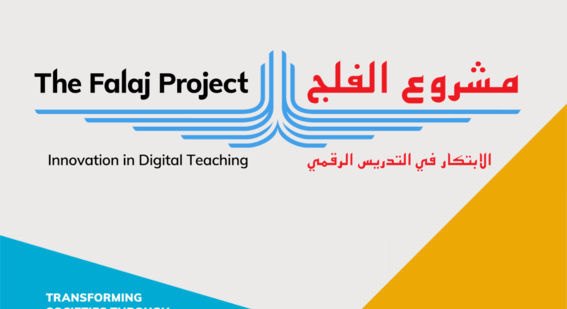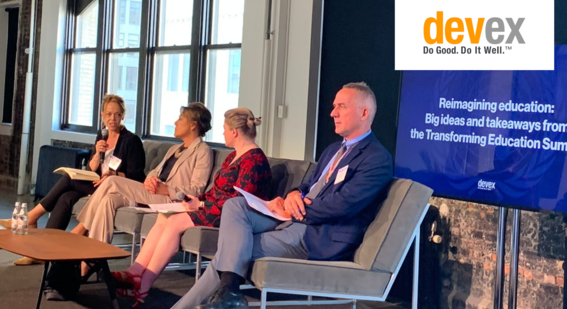What digital skills are needed to effectively evaluate the trustworthiness of information?
At Cambridge Partnership for Education, we collaborate with organisations around the world to improve education systems. We want to share their voices and viewpoints on the most pressing issues in education.
In this article, Andreas Schleicher, Director of Education and Skills at the OECD, discusses one such crucial issue: how to help students to make sense of abundant, often conflicting pieces of information.

In an age when the internet offers millions of answers, how can students understand what’s right and what’s true?
The answer is that they often struggle. The results of our most recent global PISA test showed just under half (49%) of 15-year-olds across OECD countries could distinguish between fact and opinion.
This might not have been a problem in the past, when literacy involved extracting and processing pre-fabricated information from reliable sources. For instance, a teacher could instruct students to look up information in an encyclopaedia, in the knowledge it would be accurate.
But now, literacy entails building and validating knowledge and steering a course through ambiguity, in an attempt to make sense out of content.
It’s clear that advancements in literacy skills are lagging behind changes in the nature of information, and our ability to navigate them. We’re living in a world where virality of information often seems to take precedent over its quality. Content becomes accepted as fact, even if it has no basis in truth.
On social media, algorithms keep us in a bubble where we only encounter information that reflects and reinforces our own views. This makes societies more polarised, which can have a significant, adverse impact on democratic processes.
We’re living at a time when disruptive forces are having an impact on every aspect of our lives. This gives rise to a politics of closed borders and the protection of traditional jobs. The interests of today’s generation are prioritised over those of the future. This is what is at stake for education.
We need to consider how we can succeed in this new world of information. One way forward is to approach the problem from a skills perspective, to strengthen people’s capability to better navigate information. And another is through taking a consumer protection approach. However, in an unregulated market for information, it seems very hard to do anything against those who produce and deliver fake news. Options include placing certain constraints on the behaviour and pronouncements of the influential and powerful, more robust standards for the journalists, and extending consumer protection to voters. But if we were to take such steps, where will this restrict freedom of speech and creativity in knowledge creation?
Political advertising on social media also needs closer attention. Most social media users don’t appreciate the degree and precision with which targeting techniques are used. It could be that the role of the social media platforms will need to change, given they have effectively become publishers of news and information. They have a key role to play in restricting fake news. Maybe businesses too need to act, with more stringent conditions on where they advertise, prioritising quality and credibility over clicks.
In addition, there is a need to strengthen the capacity of learners to navigate the new world of information. This is challenging when time and resources for teaching digital literacy are even more stretched than they were before the pandemic. Teachers are often overwhelmed or may struggle to engage children across differing levels of parental engagement and digital connectedness.
Previously, disinformation may have seemed a distant and political concern to teachers and some children, with little relevance in the school yard and staff room. But now, the infodemic and the uncertainty it creates about basic scientific and health-related facts has captured the focus of children as young as 10 – and their desire for tools and solutions. Journalists from the Lie Detectors – a news literacy organisation working to increase awareness of misinformation – have found children asking questions such as: “What do you do as a journalist to find out if the coronavirus was made in a military lab?”; “Is it true you can catch it from washing your hands too much?” They’ll also question why disinformation is allowed to spread on their social media accounts.
A moment is emerging to integrate a new digital literacy into learning and teaching in a way that guarantees its independence from partisan and commercial influence. Such an approach will have to be tested and results measured as they emerge.
In the medium term, lateral literacy – the act of stopping to look left and right before proceeding online, checking facts before basing opinions about them – must become integrated into school and teacher-training curricula and rank in importance alongside basic literacies of reading and writing. All school and teacher training curricula should include interrogation of sources of information – asking questions such as who created the content, and whether it’s credible, considering biases.
This goes beyond fake news and disinformation, and into making informed decisions, and with that, functioning democracies.
The growing complexity of modern living suggests that the solutions to our problems will be increasingly more complex: young people will need to become skilled at handling tensions, dilemmas and trade-offs. Being able to strike a balance between competing demands – equity and freedom, autonomy and community, innovation and continuity, efficiency and democratic process – will all hinge on 21st century literacy skills.
The good news is that the tools to develop these skills are ready. They are being tried and tested by teachers all around the world who have understood what it means to educate students for their future, rather than for our past.
Cambridge offers a rigorous digital literacy curriculum for learners aged 5 to 14, which has a strong focus on learners understanding their place, and the place of others, in an interconnected world and making educated decisions about the information that they encounter online. This is supported with high quality professional development face to face or online. To find out more about this curriculum, including adapting it for your national context, please contact us.




